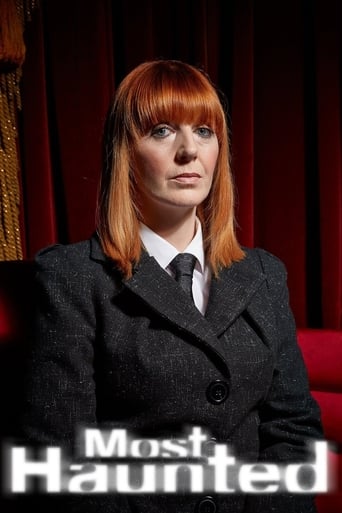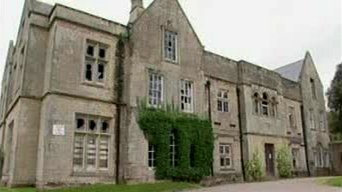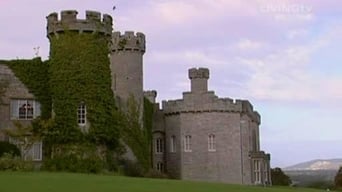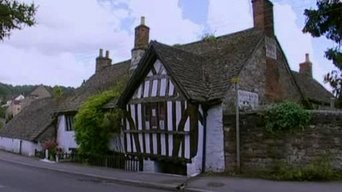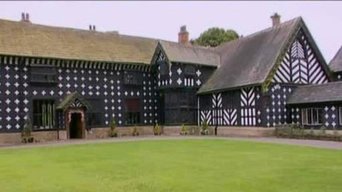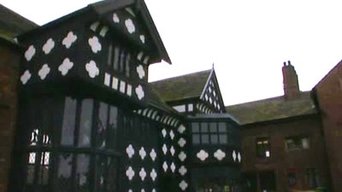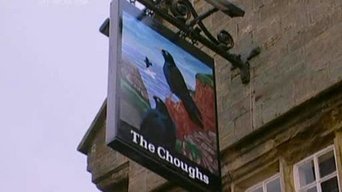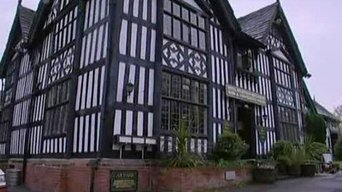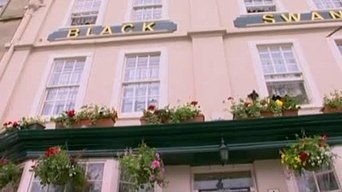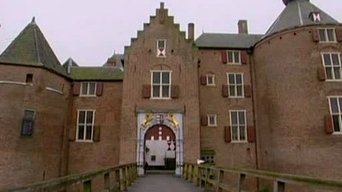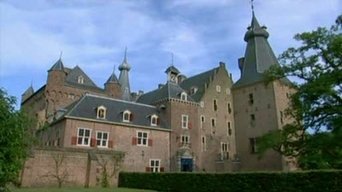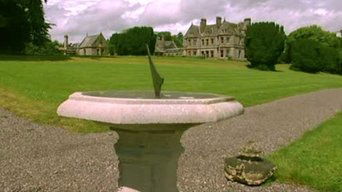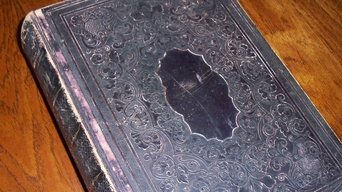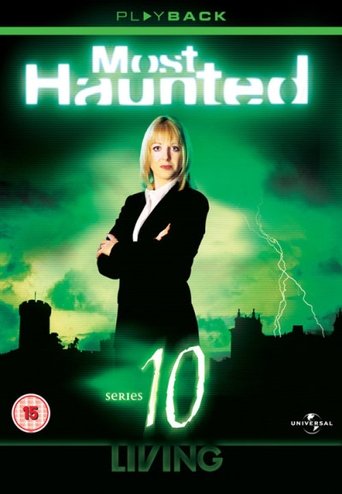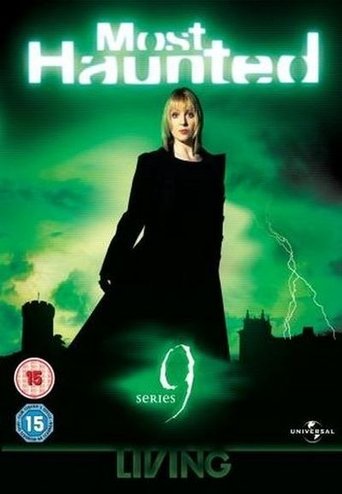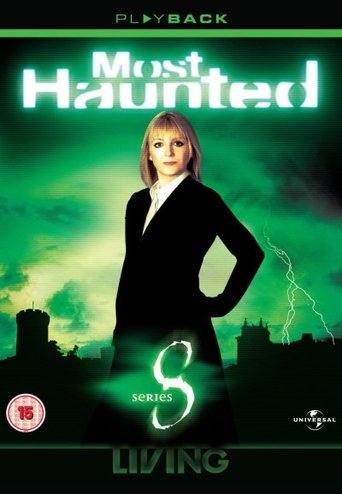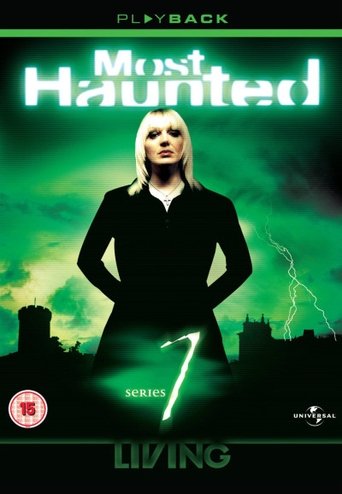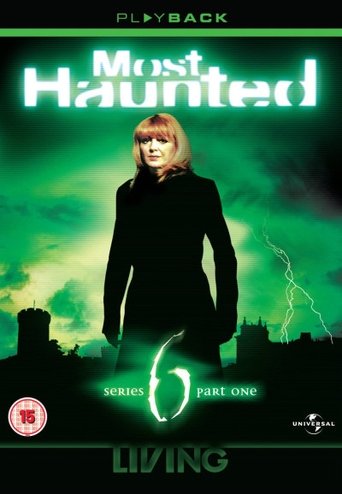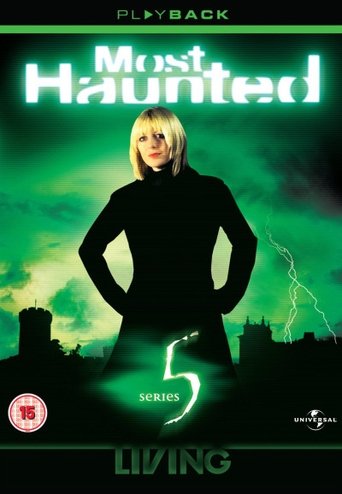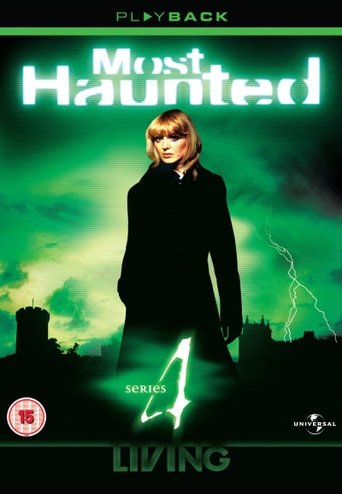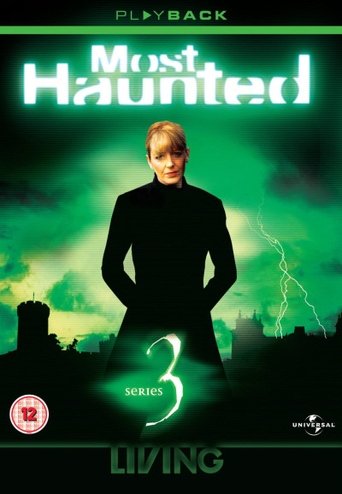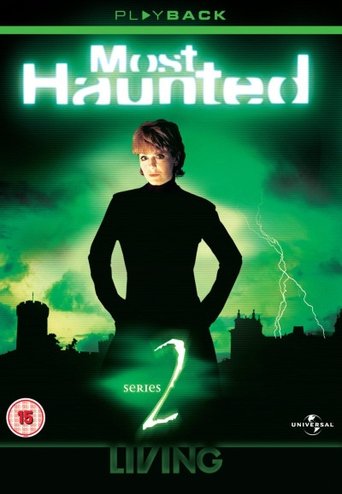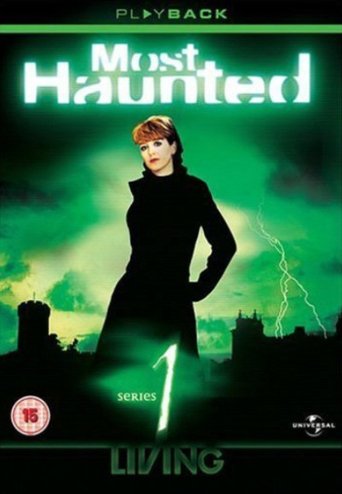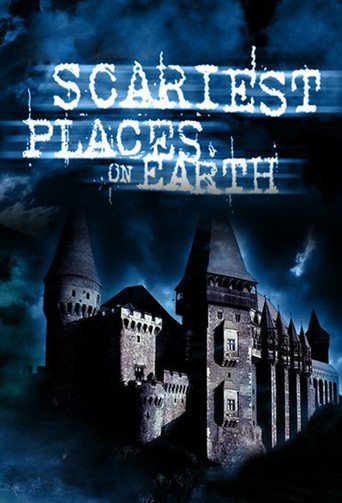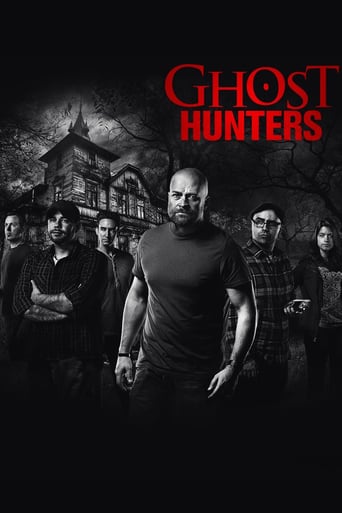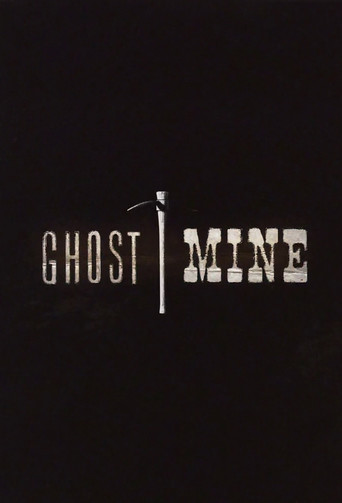Most Haunted Season 5

Most Haunted is a British paranormal mystery documentary reality television series. The series was first shown on 25 May, 2002 and ended on 21 July, 2010. Led by Yvette Fielding, the programme investigated purported paranormal activity in many locations in the United Kingdom, Republic of Ireland and other countries. It was produced by Antix Productions and broadcast on the satellite and cable channels Living TV, Livingit, and Channel One. In the United States it was broadcast on the Travel Channel.
Watch NowWith 30 Day Free Trial!
Most Haunted
2002


Most Haunted is a British paranormal mystery documentary reality television series. The series was first shown on 25 May, 2002 and ended on 21 July, 2010. Led by Yvette Fielding, the programme investigated purported paranormal activity in many locations in the United Kingdom, Republic of Ireland and other countries. It was produced by Antix Productions and broadcast on the satellite and cable channels Living TV, Livingit, and Channel One. In the United States it was broadcast on the Travel Channel.
Watch Trailer
With 30 Day Free Trial!
Most Haunted Season 5 Full Episode Guide
Join the crew at The Ancient Ram Inn as they embark on one of the scariest visits ever!
Description: Ancient hall at one time used as an inn and school, now preserved by local trustees. The original building was constructed in 1325. History: - The first Hall was built by the D'Ewyas family on the bank of the River Ribble but this was destroyed by Robert The Bruce, following the battle of Bannockburn. - By 1325, the Great Hall of the present building was built by Gilbert de Southworth, husband of Alice D'Ewyas. - The West Wing of the house, the oriel bay and the screen were all later added by Thomas de Southworth (Gilbert's great grandson). - Alas, the family fell into debt and Edward Southworth was forced to sell the Hall to Thomas Braddyll in March 1678. - Braddyll never lived there but removed all he could to enhance his own home at Conishead Priory, Ulverston. - Braddyll let the Hall to several families of hand loom weavers. As result, the hall became more and more dilapidated. - Between 1830-1846 Braddyll ran the Hall as an inn called the Bradyll Arms.
Description: Hotel named after a famous Crow-type of Cornish bird. No one knows exactly when the hostelry was built but it's believed to date back to the mid-1600s, as there is a fireplace which bears the date of 1644. History: A disastrous fire swept through the area in 1578 but the building survived. In 1685 when Somerset was traumatised by the Rebellion of the Duke of Monmouth, King James II responded quickly and a battle was fought nearby. The rebels were defeated and slaughtered, Monmouth was captured, tried and beheaded despite his pleas for mercy. Monmouth supporters were then hunted through the West Country by Judge Jeffreys and Colonel Percy Kirke who carried out executions of anyone suspected of complicity. Kirke hanged people without trials, while Jeffreys managed to hold trials before hanging the rebels on the tree called 'Hanging Cross'. He once stayed at the hotel, and was responsible for the deaths of more than 300. He is a hated figure in Somerset. Ghost ratings:
Description: Former pub, now a hotel. The current building was built in 1732. According to John Girven (local historian) the cellars date back to the 1600's when a previous pub known as the Nags Head stood on this site. History: It was owned by a notorious horse dealer and suspected highwayman, Ambrose Saintsbury. In 1732, the building was re-built and renamed the Sergeant's Head. The proprieter at that time was Francis Paradise, a former sergeant of the mace to the towns Mayor In 1789, the building was leased to Walter Flay, and in the same year, was struck by lightening, causing severe damage to the stables The cellars have five chambers which lead off from a central passage; however the rear of the cellar has been bricked up, blocking access to what is believed some extra 100 feet or so of underground tunnel, which runs under the establishment's yard In 1999, John Girven removed a brick from this area while investigating the suspected tunnel. This act allegedly marked the start
Description: In 1350 Dirk van Herlaer ordered Castle Ammersoyen to be built along a branch of the river Maas. Contrary to other medieval castles, Castle Ammersoyen was built according to a fixed plan. Four wings were erected around an inner-court with four heavy towers at the corners. History: In 1386 the van Herlaer family lost Castle Ammersoyen to the duke of Gelderland who captured the strategically situated castle. The Duke gave the castle to his illegitimate son, who sold it to Johan van Broekhuyzen, Lord of Waardenburg, in 1424. In the next four hundred years Ammersoyen only passed into other hands by inheritance. In 1496 Walrave van Broekhuyzen married Otto Van Arkel, member of a well-known family. Under the succeeding five generations of this family Castle Ammersoyen was given its final structure. In 1574 the Spanish followed. Most damage however was done by a fire in 1590. Because of a shortage of money the Arkel family was not able to restore the heavily damaged castle u
Description: Ancient castle located on the border of the Rhine. It was a centre of power, government, and administration of justice. In 1260 there was a wooden fortress on the site, which was destroyed by a warlord of the bishop of Utrecht. But 20 years later it had been rebuilt in stone, and was again besieged and plundered. History: In the early 15th century the North Wing was added, together with battlements and defence towers. During the latter half of the century, the big tower and parts of the South Wing were built. During the 16th century there was another floor added to the East wing, the South Wing was extended, and the round tower with winding stairs connected all the floors of the extended castle. By around 1640 the castle reached its present shape. Through its long history it was repeatedly besieged, burnt down, restored and left uninhabited for long periods of time. The most severe destruction happened during and after the Battle of Arnhem in September 1944. Almost 75
http://www.castleleslie.com Description: Private castle now owned by descendants of the original Leslie clan. The castle was bought in 1655 by the Bishop of Clogher John Leslie but was added to and rebuilt in 1878. History: The Leslies can trace their ancestry back to Atilla The Hun. The first Leslie came from Scotland and was a Hungarian nobleman called Bartholomew Leslie who was the chamberlain and protector of Margaret Queen Of Scotland. The Leslie family motto is ""Grip Fast"" which originated from when fleeing enemies Queen Margaret rode pillion on the back of Bartholomew's horse. When fording a river the queen fell off, Bartholomew through her the end of his belt and told her to grip fast the buckle. He saved the Queen's life and from that day forward she bestowed this motto to them. The first Leslie to come to Ireland was Bishop John Leslie who was Bishop of the Isles of Scotland, in the early 1600s. The castle's ownership was passed on down through many of the Leslie clan in
http://www.kinnittycastle.com Description: Former ancient castle, now 37-room luxury hotel Era: "" The first Castle at Kinnitty was destroyed in 1209 and was later rebuilt by the Normans in 1213. History: After rebuilding the castle, the Normans were driven out by the powerful Gaelic clan, the O'Carrolls of Ely. 1630, William O'Carroll built a new Castle in close proximity to the old Abbey. This was confiscated in 1641 by the English forces as part of the plantation of Offaly, or ""Kings County"" as it was renamed. In 1922, as with many stately homes in Ireland, the Castle was burned down by the Republican forces. The Castle was rebuilt in 1928 and the Bernard family lived there until 1946 when it was sold to Lord Decies who in turn sold the Castle to The State in 1951. The State retained ownership until it was purchased by the Ryan family in 1994 and has since been transformed. Ghost ratings: In the Banquet Hall there is a huge presence of a spirit of a monk, very tall and is alw
Free Trial Channels
Seasons


